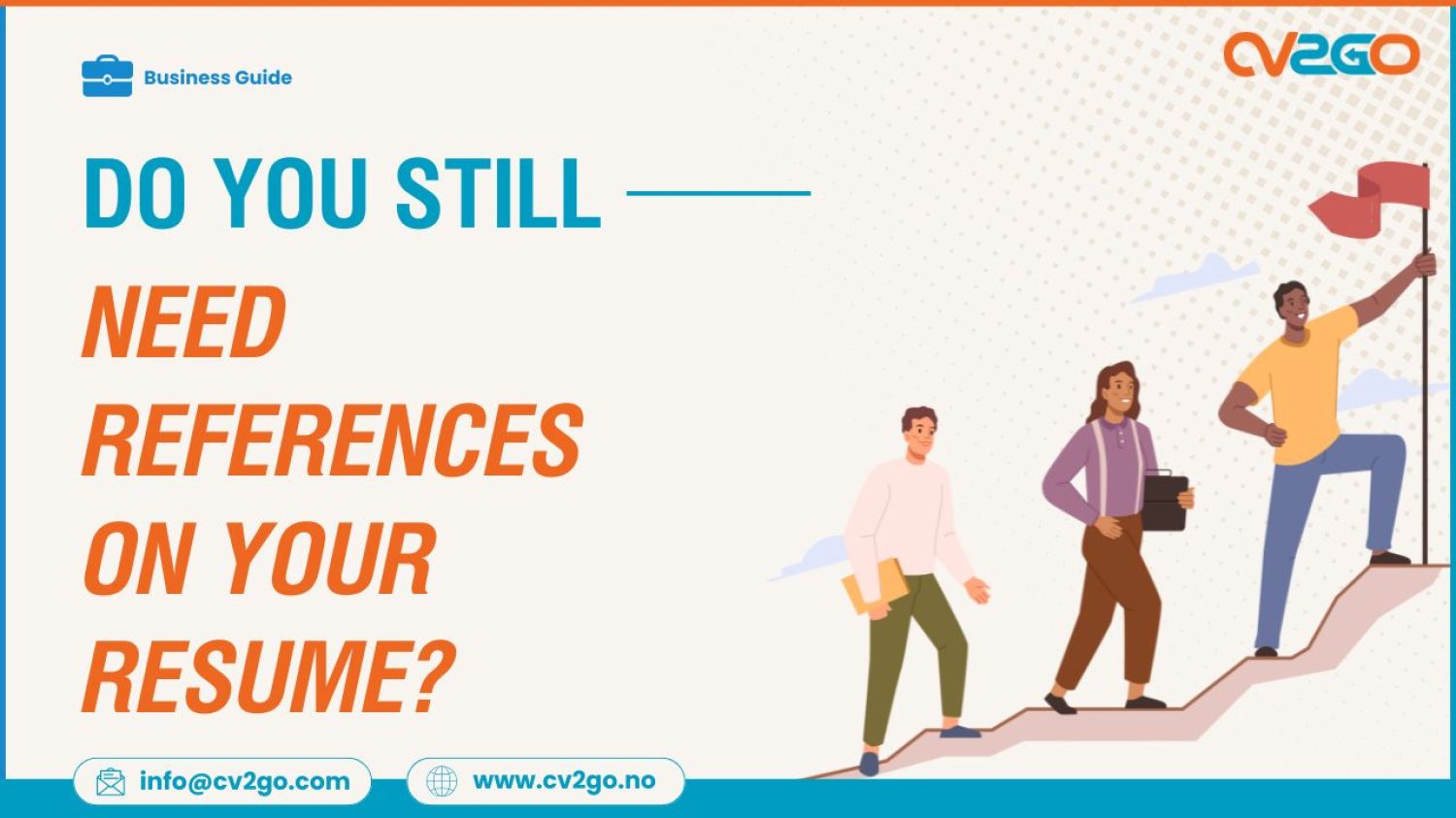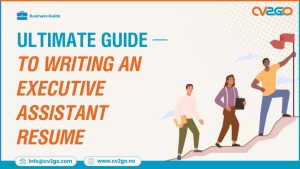When hiring managers narrow down the candidate pool, they need to delve deeper into the applicants’ professional qualifications and personal attributes. They do this by performing background checks and asking for references. While the practice of requesting references has declined in recent years, it remains a crucial part of the hiring process to verify a candidate’s credentials and fit for the company.
So, should you include “References Available Upon Request” on your resume? The short answer is no. However, references continue to play an essential role in securing a job offer. In this article, we’ll explore when to provide references, how to choose the best ones, and how to present them effectively if requested by a potential employer.
Should You Put “References Available Upon Request” on Your Resume?
In the past, it was common practice to add “References Available Upon Request” at the bottom of your resume. This phrase served as a placeholder for employers who didn’t have extensive human resources departments and relied heavily on references to verify an applicant’s background. Without the convenience of the internet, calling a former boss or manager was an effective way to gauge an employee’s qualifications.
However, times have changed. Adding this phrase is now considered outdated and unnecessary. Recruiters and hiring managers assume you will provide references when requested. Instead of using valuable space on your resume for this phrase, focus on including information that showcases your skills, accomplishments, and experience.
Is It Legal for Companies to Ask for References?
Yes, it is entirely legal for companies to ask for references during the hiring process. Employers are within their rights to request professional and character testimonials to validate your qualifications. What’s illegal, according to the Equal Employment Opportunity Commission (EEOC), is providing a negative or false reference based on discriminatory reasons. Employers cannot give a bad reference or withhold one due to:
- Racial bias
- Colorism
- Religion
- Disability
- Gender
- Pregnancy
- Sexual orientation
- National origin
- Age (if the applicant is 40 or older)
- Genetic information
To protect themselves from potential lawsuits, many companies now have a “no reference” or “limited reference” policy. This policy helps avoid legal disputes by restricting the information HR departments provide about former employees.
Why Do Some Companies Still Ask for References?
Despite the decline in formal references, many companies still request them for several reasons:
- Verification of Employment Dates: Employers want to confirm that you worked at a company during the dates you listed on your resume. While pay stubs can serve as proof, references offer an additional layer of verification.
- Confirmation of Job Title and Responsibilities: Companies may want to verify your exact role and duties to ensure your resume accurately reflects your work history.
- Assessment of Work Ethic and Attitude: Hiring managers may have concerns about your reliability, teamwork, and professionalism. References can provide insight into these qualities, though they must do so in a manner compliant with employment laws.
Can References Harm Your Chances of Getting Hired?
Yes, references can negatively impact your chances of getting a job if:
- The Feedback is Negative: If a former employer provides poor feedback about your performance, it can raise red flags for potential employers.
- Your Information Cannot be Verified: If a reference cannot confirm the dates, job titles, or responsibilities listed on your resume, it can damage your credibility.
To avoid these pitfalls, be honest about potential issues during the interview process. Addressing concerns proactively can mitigate the impact of a negative reference.
How Do Employers Contact References?
Employers typically reach out to references using the contact information you provide. They may contact your references via:
- Phone Calls: The most common method for verifying information and gathering feedback.
- Emails: Written requests for verification or feedback, which allow for a documented response.
- LinkedIn and Online Searches: Some hiring managers may look up your references online to confirm their job titles and affiliations.
Should You Avoid Including References on Your Resume?
Yes, as a general rule, do not include references on your resume unless the job description specifically requests them. Instead, use that space to highlight your skills, achievements, and experience. Your resume should be focused on selling you as a candidate.
What to Do If an Employer Asks for References
If a potential employer requests references, provide them on a separate document rather than including them on the main page of your resume. Create a list of 3-4 professional references, including:
- The reference’s full name
- Their job title and company
- Their relationship to you (e.g., former supervisor)
- Their phone number and email address
This approach keeps your resume clean and professional while making it easy for employers to access your references when needed.
How to Choose the Best References
Selecting the right references is critical. The best references are individuals who:
- Worked directly with you: Supervisors, managers, colleagues, or team leaders who can speak to your skills and work ethic.
- Can provide detailed feedback: People who are familiar with your professional accomplishments and strengths.
- Are credible and respected: References from reputable professionals carry more weight with hiring managers.
Avoid using friends, family members, or romantic partners as references. If you worked for a small business or startup, you might ask the company’s owner or CEO to serve as a reference.
Tips for Managing References
- Collect Written References: Before leaving a job, ask for a written reference letter. This ensures you have a positive testimonial on hand, reducing the need for follow-up calls.
- Ask for Permission: Always get consent before listing someone as a reference. This is both respectful and ensures they are prepared if contacted.
- Keep References Updated: Maintain communication with your references and update them on your job search progress.
- Prepare References for Inquiries: Let your references know when you’ve shared their contact information, and brief them on the job you’re applying for.
What If You Don’t Have Good References?
If you lack professional references, consider the following alternatives:
- Academic References: Professors, academic advisors, or mentors can speak to your skills and character.
- Community Leaders: Clergy, volunteer coordinators, or nonprofit leaders can vouch for your work ethic and reliability.
- Colleagues: Even if you had a poor relationship with your manager, colleagues can often provide a balanced and positive reference.
Be upfront with potential employers about your situation to avoid misunderstandings.
Focus on a Strong Resume
Sometimes, a well-crafted resume can speak for itself, minimizing the need for references. A clear, concise, and ATS-friendly resume can highlight your qualifications effectively.
CV2Go offers a range of customizable templates designed to pass ATS scans and impress hiring managers. Our intuitive tools guide you through the resume-building process, ensuring your document is professional, well-structured, and tailored to your goals.
Ready to land your dream job? Start building your resume with CV2Go today and make a lasting impression!




